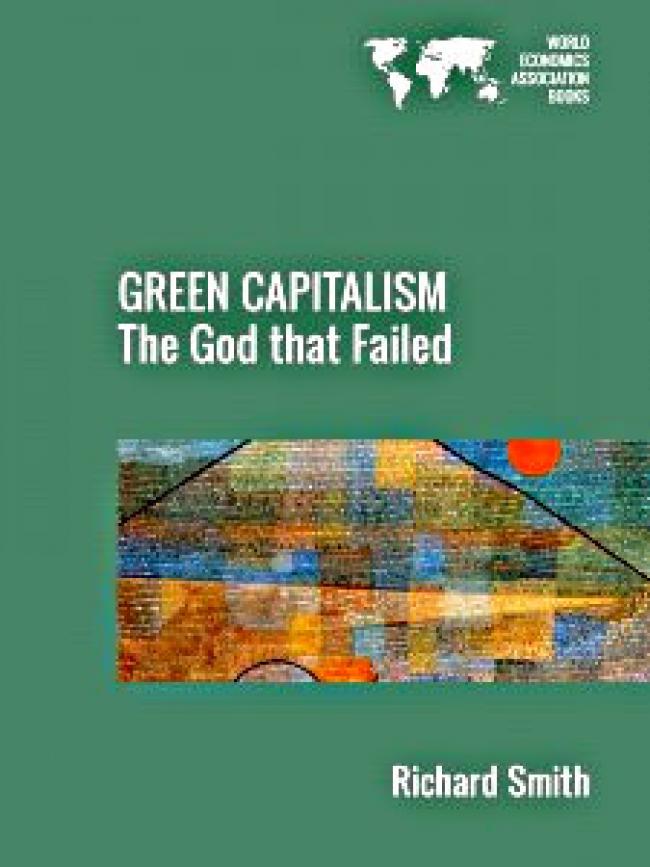Articles Menu

This book review of Green Capitalsm the God that Failed by Richard Smith was first published by the World Economics Association eBooks.
The climate crisis is the greatest threat humanity has ever faced. At the current rate of global greenhouse gas emissions, warming of the planet will shoot past two degrees Celsius by mid-century and reach 4°C to 6°C beyond pre-industrial averages by 2100. The magnitude of the impending catastrophe was eloquently described by Hans Schellnhuber, Director of the Potsdam Institute for Climate Impact Research, when he said, “the difference between two and four degrees is human civilization …” Adding to that, the biosphere faces massive pollution, resource depletion, species extinctions, ocean acidification, among other looming dangers.
But can we save ourselves? In his new book, Green capitalism: the god that failed, Richard Smith argues compellingly that “sustainable production is certainly possible but not under capitalism” and even more forcefully, “capitalism and saving the planet are fundamentally and irreconcilably at odds.” To this central question, Smith brings an impressive command of economics and an engaging conversational style of writing. He explains and illustrates with devastating clarity the key mechanisms of capitalism that force it to grow unendingly, and these explanations are supported with a broad array of examples of corporate and national economic practices from around the world.
Green capitalism: the god that failed is a compilation of previously published complementary essays. The first of the five chapters reviews the writings of Adam Smith and the historical transition to capitalism in Europe. Chapter 1 explains how, right from the start, market competition led to rapid innovation which in turn led to expansion of the market, a cycle that has continued ever since. Capitalist economics, therefore, had ecological implications from its inception, distinct from all earlier periods.